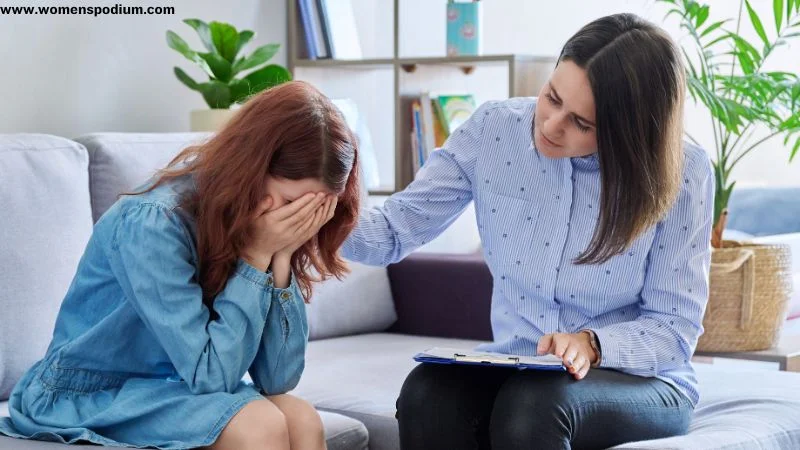
Depression can feel like a big black slug sucking out your energy every single day. It can push you to your lowest point, where it’s dark all the time, and you think you have no hope at all. Depression can throttle you into a deep, dark abyss, which you think is rock bottom, the point of no return. And during this pandemic, depression is gripping many people. It is not easy to combat depression, especially when you have to deal with a depressed friend or someone in your family.
But we’re here to tell you that you are not alone.
Statistics about Depression as a Mental Illness

In fact, according to a study conducted by the National Institute of Mental Health and Neuro Sciences (NIMHANS) from 2014 to 2016,
- Over 10% of the population suffers from common mental disorders such as depression, acute anxiety disorders, stress-related disorders and more.
- Appropriately, more than 1.9% of the population suffers from chronic or severe mental disorders such as schizophrenia or substance-related and addiction-related disorders.
- At least 13.7% of the Indian population will be diagnosed with a mental disorder at least once in their lifetime.
- More than 5-6 percent of people suffer from depression within the total population.
While browsing through these statistical facts and numbers, one must keep in mind that India’s last recorded population was over 120 crores. Since then, this number has increased, and the percent of people these statistics represent has increased as well.
It is also important to consider that these statistics only record the number of reported cases. In actuality, most cases concerning depression go unreported. Depression is a mental illness that is not regarded as a real mental condition by a lot of people in India. It is brushed aside as mere “sadness” and thought of as a “phase” or “just temporary”.
Thus, the actual numbers actually exceed the statistics by a considerable margin. The first step to getting out of this deep, dark abyss is to acknowledge that you are not alone. You are wanted, and you have a lot of people around you who understand what you are going through and help you deal with depression. If you think you are depressed or know a friend who seems or is depressed, there are certain things you should know.
What is Depression?

Depression is a mental disorder in which the individual experiences extreme feelings of sadness or guilt over an extended period of time. It may have certain trigger factors or may result from repressed trauma. Depression does not mean a person is never happy. It simply means that they are wallowing in their sadness for most of their time.
It is usual for us to feel unhappy immediately after going through a traumatic incident or continued exposure to a negative environment. However, when these feelings persist over a long period of time, and sometimes take a harmful turn, it can indicate depression.
A person experiencing a depression disorder usually adopts a negative thinking pattern. Their thoughts are centred around hopelessness or helplessness. Some of their thought processes may lean towards the following insinuations:
- I am unlovable
- Nothing will ever change
- I am unlucky or cursed
- I am worthless
- No one can help me out of this
- I am a failure
Symptoms of Depression

A person may display some common symptoms if they are suffering from depression. Remember, only a mental health professional can diagnose an individual with a particular mental illness. An inexperienced or unqualified individual should not attempt to draw conclusions based solely on the observation of these symptoms. Contacting and connecting with a mental health professional, such as a counsellor or a therapist, is of utmost importance. However, if a friend or a well-wisher is trying to deal with a depressed friend, you should look for these signs and symptoms. If they:
- Display a feeling of hopelessness
- Show a lack of enthusiasm
- Experience weight loss
- Display a lack of interest in food or a huge loss of appetite
- Face a lack of sleep or excessive sleep
- Complain about a constant feeling of fatigue
- Have a continuous feeling of sadness or feeling overwhelmed by emotions
- Harbour excessive or irrational feelings of guilt
- Face sexual dysfunction
- Experience suicidal thoughts
- Have an inability to concentrate
- Experience sudden indecisiveness
They are most likely facing depression or are slipping into a depressive mentality. At this stage, you must encourage them to contact a mental health professional or do it yourself for them.
Behavioural Changes Commonly Observed in Depressed Individuals

With a huge change in mentality, there is a noticeable change in external behaviour as well. If you notice these red flags, it automatically means you should try and deal with a depressed friend in the kindest manner. You must try and talk to them. Try to find out the reason or the factor causing them so much stress. One of your top priorities must also contact a mental health professional so habits to improve mental health can be incorporated. But first, certain observations are required so that you can intervene before it negatively harms your depressed friend.
Some of the changes seen in the behaviour of individuals suffering from depression are:
- Complaints of feeling tired all the time and sleeping more than usual
- Not doing household chores or forgetting to do them despite countless reminders
- Withdrawing from family and friends, while isolating themselves
- Getting aggressive at the smallest of trigger points
- Remaining down most of the day
- Starting to perform worse and worse academically
- Miss classes and lectures too often or remain absent with excuses
- Having difficulty following what is taught in class
- Engaging in harmful activities like drug or alcohol consumption
- Talking about death or voicing harmful thoughts about themselves
All of these unnatural changes in your friend’s behaviour are a strong indication that they are depressed. The best way to deal with a depressed friend is to observe, assess, and intervene at the grassroots level. Confronting a friend and talking about emotional turbulences can be an uncomfortable situation. Still, if you care about your friend and want them to get better, it is vital to their mental health.
How to Deal with a Depressed Friend – What You Can Do

Often, we have an image in our minds about how someone who has a mental illness will behave or dress in a certain way. However, in most cases, individuals with a mental illness will appear just like someone without a diagnosed mental illness. However, their behaviours may seem different, and they may appear changed. Close friends and family members can easily notice these subtle changes. If these early signs are recognised as red flags (behavioural changes one should be concerned about), then steps can be taken to try and prevent it from becoming a bigger problem to their mental and physical health.
Many times, though we are trying to help, our responses can be damaging. Often, this happens because we unknowingly say things that make the individual feel guilty about the emotions they are experiencing, or they may even start to feel sorry for themselves. While talking or dealing with a depressed friend, make sure you show them that you understand what they are going through and that you accept them no matter what.
Pointers on How to Deal with a Depressed Friend

These are the ways you can deal with a depressed friend:
- Approach, assess and assist at the very first indications of a crisis.
- Listen to them non-judgmentally
- Avoid minimising or comparing their experience with yourself or with other people.
- Take care of yourself as well. Know when you yourself are in the headspace to provide help.
- Be patient and calm when you deal with a depressed friend.
- Learn and read up about depression on your own
- Offer help with small tasks such as household chores or grocery shopping.
- Remind them that you are happy to see them whenever they are in the headspace for it
- Understand that depression can take many shapes and forms. A smile can hide a world of pain, but that does not mean they are okay.
- Do not define them by their illness. When you deal with a depressed friend, understand that their self-perception has changed.
- Be kind, and avoid blame or judgment.
- Give support information that you think might help them.
- Encourage appropriate professional help.
- Encourage self-help and other support strategies.
With the strategies and techniques discussed, one can efficiently deal with a depressed friend suitably. You can now provide essential yet straightforward first aid to a person showing signs and symptoms (or red flags) of specific psychological issues like depression. When these go undetected for a more extended time, it can lead to significant psychological complications.
Why Psychological Help is Important

One important thing to always remember is that mental health professionals can only treat psychological issues. A layman is not equipped with the knowledge to deal with a depressed friend. You should only try and serve as a bridge between the mentally disturbed individual and the mental health professional. This can be done by encouraging them to seek appropriate medical help at the earliest possible time. Other than this, there are only a limited number of ways to deal with a depressed friend.
Remember, providing a person with first aid in mental health is just as vital as the first aid provided to a physically injured individual. It is of extreme importance and can even be life-saving in certain cases. Treat mental health with as much importance as you treat physical health.
After all, your mind is what controls your body and not the other way round.
Also Read: The mind-body connection is not just a theory; scientific evidence supports it. Research has shown that our thoughts and emotions can affect our immune system, cardiovascular system, and even gene expression.






Supporting a friend with depression requires empathy and understanding. Listening without judgment and encouraging professional help can make a significant difference in their recovery journey. Thanks for the valuable advice.